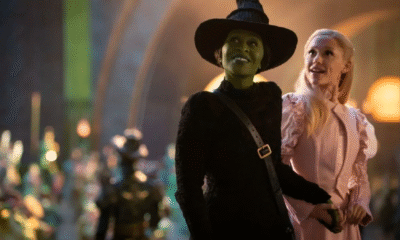Entertainment
AJ McLean and Wife Rochelle ‘Officially’ Split After 2023 Separation on January 1, 2024 at 6:39 pm Us Weekly
Nearly one year after announcing their separation, AJ McLean and wife Rochelle McLean are calling it quits for good.
The Backstreet Boys singer, 45, shared the split news via Instagram on Monday, January 1, simply captioning the reveal with a crying emoji.
“As you all know we have been separated for over a year now,” read the accompanying statement. “While we have hoped for reconciliation we have decided to officially end our marriage. It is with deep love and respect that we have made this decision.”
The message, which was signed by both AJ and Rochelle, 42, concluded: “Our focus now is moving forward in the healthiest possible way with friendship and coparenting our girls at the forefront of this next chapter. We appreciate your kindness respect and privacy at this time.”
Rochelle shared the same statement via her own Instagram account on Monday, adding a black heart emoji in the caption.
The former couple began dating in March 2009, and AJ proposed after 10 months during a trip to Las Vegas. The pair tied the knot in a goth-themed wedding ceremony in Beverly Hills in December 2011.
AJ and Rochelle went on to welcome Elliott and Lyric in 2012 and 2017, respectively.
Rochelle Deanna Karidis and AJ McLean Jason LaVeris/FilmMagic
AJ and Rochelle previously hit a rough patch after 11 years of marriage in March 2023. “Marriage is hard, but worth it. We have mutually decided to separate temporarily to work on ourselves, and on our marriage with the hope of building a stronger future,” the pair noted in a joint statement to Us Weekly.
At the time, the twosome asserted that their aim was “to come back together and continue to nurture our love for one another, and our family,” adding, “We ask for respect and privacy at this time. Separation is hard enough without the commentary, please be kind and remember there are children involved.”
Despite their breakup, AJ remained close with Rochelle as they continued to raise their children. “We still live separately, but we are in couples therapy. We are in individual therapy. We talk every day. We are spending more time together,” he explained on a November 2023 episode of Cheryl Burke‘s “Sex, Lies, and Spray Tans” podcast. “We just have to rebuild something that was never there from the beginning.”
AJ confessed that both he and Rochelle faced personal challenges at the beginning of their romance, noting that his battle with substance abuse took a toll on their relationship. (He celebrated two years of sobriety last fall.)
“I came with baggage, she came with baggage. She had trauma, I had trauma. I wasn’t sober or even ready to get sober, she was dealing with her own s–t,” he continued. “It was just a constant push-pull. She would sweep her feelings under the rug, I would do the same thing or I’d dive into a bottle. Now, it’s taken this time apart for us to really do some serious growing and understanding and listening.”
Nearly one year after announcing their separation, AJ McLean and wife Rochelle McLean are calling it quits for good. The Backstreet Boys singer, 45, shared the split news via Instagram on Monday, January 1, simply captioning the reveal with a crying emoji. “As you all know we have been separated for over a year now,”
Us Weekly Read More
Entertainment
What We Can Learn Inside 50 Cent’s Explosive Diddy Documentary: 5 Reasons You Should Watch
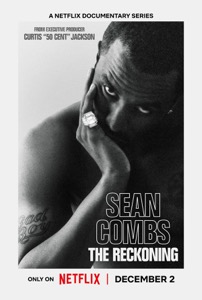
50 Cent’s new Netflix docuseries about Sean “Diddy” Combs is more than a headline-grabbing exposé; it is a meticulous breakdown of how power, celebrity, and silence can collide in the entertainment industry.
Across its episodes, the series traces Diddy’s rise, the allegations that followed him for years, and the shocking footage and testimonies now forcing a wider cultural reckoning.
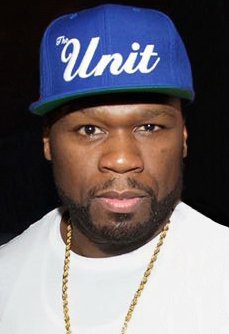
1. It Chronicles Diddy’s Rise and Fall – And How Power Warps Reality
The docuseries follows Combs from hitmaker and business icon to a figure facing serious criminal conviction and public disgrace, mapping out decades of influence, branding, and behind-the-scenes behavior. Watching that arc shows how money, fame, and industry relationships can shield someone from scrutiny and delay accountability, even as disturbing accusations accumulate.
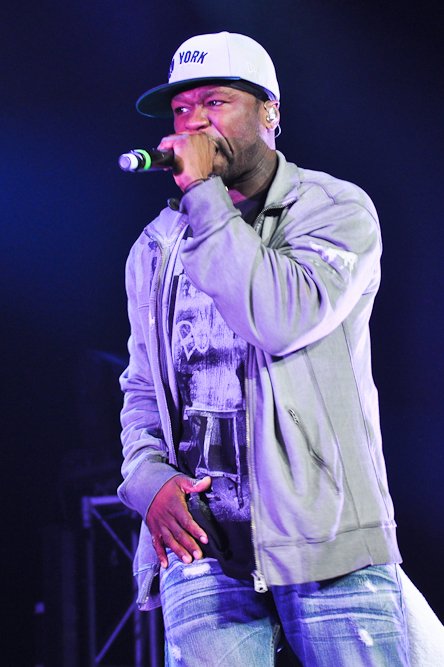
2. Never-Before-Seen Footage Shows How Narratives Are Managed
Exclusive footage of Diddy in private settings and in the tense days around his legal troubles reveals how carefully celebrity narratives are shaped, even in crisis.
Viewers can learn to question polished statements and recognize that what looks spontaneous in public is often the result of strategy, damage control, and legal calculation.
3. Survivors’ Stories Highlight Patterns of Abuse and Silence
Interviews with alleged victims, former staff, and industry insiders describe patterns of control, fear, and emotional or physical harm that were long whispered about but rarely aired in this detail. Their stories underline how difficult it is to speak out against a powerful figure, teaching viewers why many survivors delay disclosure and why consistent patterns across multiple accounts matter.
4. 50 Cent’s Approach Shows Storytelling as a Tool for Accountability
As executive producer, 50 Cent uses his reputation and platform to push a project that leans into uncomfortable truths rather than protecting industry relationships. The series demonstrates how documentary storytelling can challenge established power structures, elevate marginalized voices, and pressure institutions to respond when traditional systems have failed.
5. The Cultural Backlash Reveals How Society Handles Celebrity Accountability
Reactions to the doc—ranging from people calling it necessary and brave to others dismissing it as a vendetta or smear campaign—expose how emotionally invested audiences can be in defending or condemning a famous figure. Watching that debate unfold helps viewers see how fandom, nostalgia, and bias influence who is believed, and why conversations about “cancel culture” often mask deeper questions about justice and who is considered too powerful to fall.
Entertainment
South Park’s Christmas Episode Delivers the Antichrist
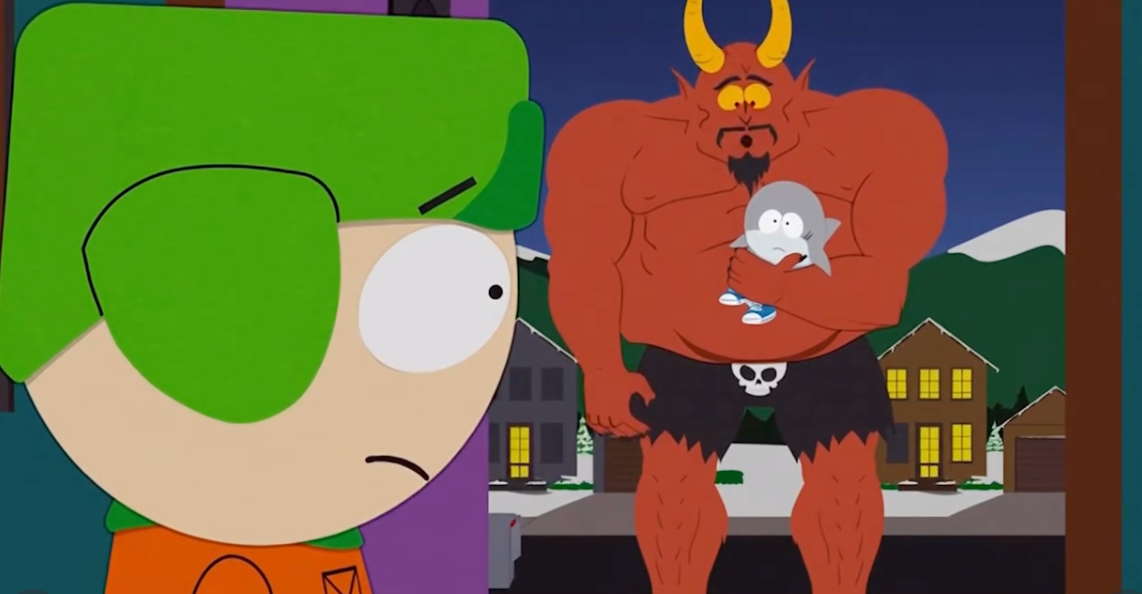
A new Christmas-themed episode of South Park is scheduled to air with a central plot in which Satan is depicted as preparing for the birth of an Antichrist figure. The premise extends a season-long narrative arc that has involved Satan, Donald Trump, and apocalyptic rhetoric, positioning this holiday episode as a culmination of those storylines rather than a stand‑alone concept.
Episode premise and season context
According to published synopses and entertainment coverage, the episode frames the Antichrist as part of a fictional storyline that blends religious symbolism with commentary on politics, media, and cultural fear. This follows earlier Season 28 episodes that introduced ideas about Trump fathering an Antichrist child and tech billionaire Peter Thiel obsessing over prophecy and end‑times narratives. The Christmas setting is presented as a contrast to the darker themes, reflecting the series’ pattern of pairing holiday imagery with controversial subject matter.
Public and political reactions
Coverage notes that some figures connected to Donald Trump’s political orbit have criticized the season’s portrayal of Trump and his allies, describing the show as relying on shock tactics rather than substantive critique. Commentators highlight that these objections are directed more at the depiction of real political figures and the show’s tone than at the specific theology of the Antichrist storyline.
At the time of reporting, there have not been widely reported, detailed statements from major religious leaders focused solely on this Christmas episode, though religion-focused criticism of South Park in general has a long history.
Media and cultural commentary
Entertainment outlets such as The Hollywood Reporter, Entertainment Weekly, Forbes, Slate, and USA Today describe the Antichrist arc as part of South Park’s ongoing use of Trump-era and tech-world politics as material for satire.
Viewer guidance and content advisory
South Park is rated TV‑MA and is intended for adult audiences due to strong language, explicit themes, and frequent use of religious and political satire. Viewers who are sensitive to depictions of Satan, the Antichrist, or parodies involving real political figures may find this episode particularly objectionable, while others may view it as consistent with the show’s long‑running approach to controversial topics. As with previous episodes, individual responses are likely to vary widely, and the episode is best understood as part of an ongoing satirical series rather than a factual or theological statement.
Entertainment
Sydney Sweeney Finally Confronts the Plastic Surgery Rumors

Sydney Sweeney has decided she is finished watching strangers on the internet treat her face like a forensic project. After years of side‑by‑side screenshots, “then vs now” TikToks, and long comment threads wondering what work she has supposedly had done, the actor is now addressing the plastic surgery rumors directly—and using them to say something larger about how women are looked at in Hollywood and online.

Growing Up on Camera vs. “Before and After” Culture
Sweeney points out that people are often mistaking normal changes for procedures: she grew up on camera, her roles now come with big‑budget glam teams, and her body has shifted as she has trained, aged, and worked nonstop. Yet every new red‑carpet photo gets folded into a narrative that assumes surgeons, not time, are responsible. Rather than walking through a checklist of what is “real,” she emphasizes how bizarre it is that internet detectives comb through pores, noses, and jawlines as if they are owed an explanation for every contour of a woman’s face.
The Real Problem Isn’t Her Face
By speaking up, Sweeney is redirecting the conversation away from her features and toward the culture that obsesses over them.
She argues that the real issue isn’t whether an actress has had work done, but why audiences feel so entitled to dissect her body as public property in the first place.
For her, the constant speculation is less about curiosity and more about control—another way to tell women what they should look like and punish them when they do not fit. In calling out that dynamic, Sweeney isn’t just defending herself; she is forcing fans and followers to ask why tearing apart someone else’s appearance has become such a popular form of entertainment.

 Entertainment4 weeks ago
Entertainment4 weeks agoAriana & Cynthia Say They’re in a ‘Non‑Demi Curious, Semi‑Binary’ Relationship… WTF Does That Even Mean?

 News4 weeks ago
News4 weeks agoMexico Bans Dophin Shows Nationwide

 Entertainment4 weeks ago
Entertainment4 weeks agoColombia’s ‘Doll’ Arrest: Police Say a 23-Year-Old Orchestrated Hits, Including Her Ex’s Murder

 Entertainment4 weeks ago
Entertainment4 weeks agoHow The Grinch Became The Richest Christmas Movie Ever

 Entertainment4 weeks ago
Entertainment4 weeks agoMiley Cyrus Is Engaged to Maxx Morando

 News4 weeks ago
News4 weeks agoUS May Completely Cut Income Tax Due to Tariff Revenue

 Business3 weeks ago
Business3 weeks agoLuana Lopes Lara: How a 29‑Year‑Old Became the Youngest Self‑Made Woman Billionaire

 Film Industry2 weeks ago
Film Industry2 weeks agoDisney Brings Beloved Characters to ChatGPT After $1 Billion OpenAI Deal













